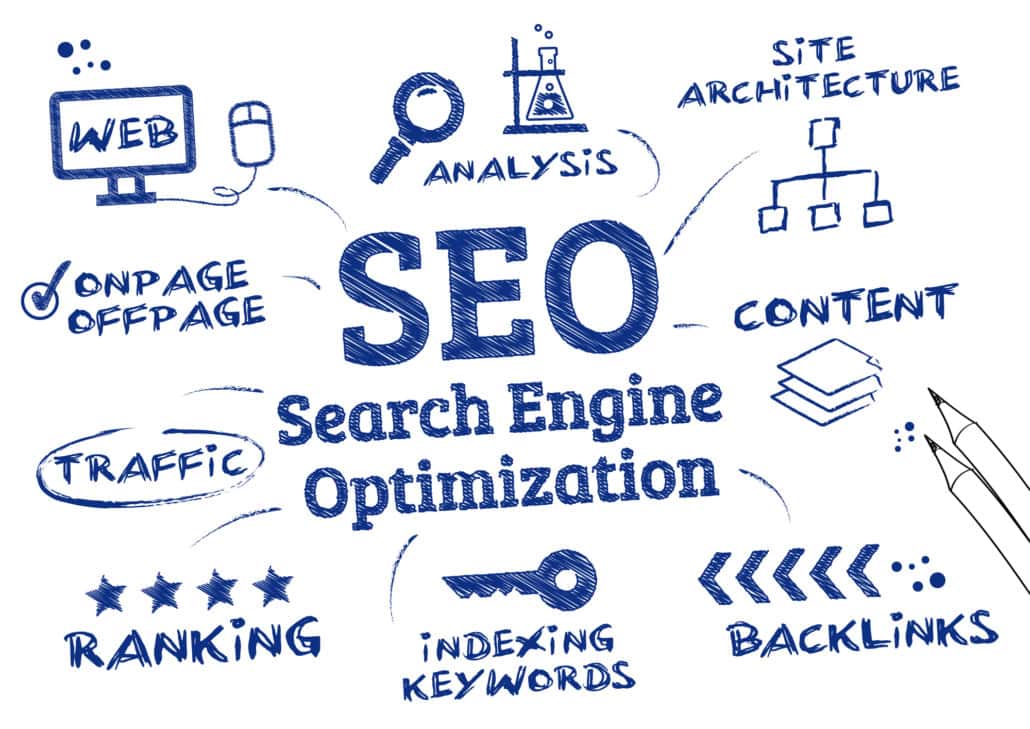Local SEO Strategies for Small Businesses Success

Welcome to our article on local SEO strategies for small businesses success. In today’s digital age, it’s essential for small businesses to leverage the power of local SEO to effectively reach their target audience.
Local SEO focuses on optimizing your website and online presence to rank higher in local search results. By implementing the right strategies, you can attract more customers from your local area and establish a strong online presence within your community.
In this article, we will explore the importance of local SEO for small businesses and provide you with actionable strategies to improve your online visibility. From conducting a local SEO audit to optimizing your website for local search, we’ll cover all the essential steps to help your small business succeed.
Key Takeaways:
- Implementing local SEO strategies is crucial for small businesses to reach their target audience.
- By optimizing your website and online presence for local search, you can attract more customers from your local area.
- Conducting a local SEO audit will help you identify areas for improvement and optimize your digital presence.
- Following a comprehensive local SEO checklist will ensure you cover all essential aspects of optimizing your small business’s online presence.
- Utilizing tools and resources specifically designed for local SEO can assist you in implementing and monitoring your strategies effectively.
Understanding Local SEO
When it comes to small businesses, local SEO plays a vital role in improving online visibility and attracting targeted customers. Local SEO focuses on optimizing your website to rank higher in local search results, making it easier for potential customers to find you in their local area. But what exactly is local SEO and how does it differ from general search engine optimization?
In a nutshell, local SEO is a subset of search engine optimization that targets a specific geographic location. It involves optimizing your website, online listings, and other digital assets to achieve better visibility in local search results. Local SEO employs various strategies and techniques to ensure your business appears in relevant local searches, such as “dentist in New York” or “plumber near me”.
Unlike general search engine optimization, which focuses on improving overall website visibility, local SEO is more targeted and aims to capture local customers who are actively searching for products or services in their area. This is especially important for small businesses that rely on local clientele to drive their sales and revenue.
The significance of website optimization for local SEO
Optimizing your website is a crucial aspect of local SEO. By implementing website optimization strategies that align with local SEO best practices, you can increase your chances of ranking higher in local search results and attracting more organic traffic. When optimizing your website for local SEO, consider the following key factors:
- Keyword optimization: Identify relevant local keywords and incorporate them naturally throughout your website’s content, including headings, meta tags, and URLs.
- Localized content: Create high-quality, locally-focused content that appeals to your target audience in the local area. This can include blog posts, articles, and landing pages that address specific local interests and needs.
- Mobile optimization: With the majority of internet users accessing websites through their mobile devices, it is crucial to ensure your website is mobile-friendly and provides a seamless user experience across all devices.
- Website speed: Optimize your website’s loading time to improve user experience and reduce bounce rates. Slow-loading websites can negatively impact your search engine rankings and user engagement.
By implementing these website optimization techniques, you can enhance your website’s online visibility, attract more local customers, and ultimately drive business growth.
Local SEO vs. General SEO
| Local SEO | General SEO |
|---|---|
| Targets a specific geographic location | Targets a broader audience |
| Optimizes website and digital assets for local search results | Optimizes website for overall visibility in search results |
| Focuses on local keywords and localized content | Focuses on general keywords and broader content |
| Aims to attract local customers and drive foot traffic | Aims to attract a larger audience and generate online sales |
In conclusion, understanding the basics of local SEO is essential for small businesses looking to improve their online presence and attract targeted local customers. By optimizing your website and implementing local SEO strategies, you can increase your visibility in local search results, drive more organic traffic, and ultimately achieve business success.
Conducting a Local SEO Audit
In this section, we will guide you through the process of conducting a local SEO audit for your small business. By performing a thorough audit, you will gain valuable insights into the areas of your website that can be optimized to improve your local search rankings and attract more targeted traffic.
To conduct a successful local SEO audit, there are key elements that you need to assess:
- Website Performance: Evaluate the loading speed, mobile responsiveness, and overall user experience of your website. Optimize your site’s performance to ensure a seamless browsing experience for your visitors.
- Keywords: Analyze the keywords you are currently targeting and identify new local keywords that can drive more relevant traffic to your site. Ensure that your website content is optimized with these keywords to increase your visibility in local search results.
- Local Listings: Check your presence and accuracy on local directories such as Google My Business, Yelp, and Bing Places. Ensure that your business information, such as name, address, and phone number (NAP), is consistent across all listings.
- Online Reviews: Review your online reputation and customer feedback. Monitor and respond to reviews on platforms like Google, Yelp, and industry-specific review sites. Positive reviews and ratings can enhance your local search visibility and establish trust among potential customers.
During the audit, identify areas for improvement based on the above elements and prioritize them according to their impact on your local SEO performance. Develop an actionable plan to optimize your digital presence, focusing on website performance, keyword targeting, local listings management, and online reputation.
By conducting a thorough local SEO audit, you will be able to optimize your website for better local search visibility, reach your target audience, and drive more traffic to your small business.
Local SEO Checklist
In order to optimize your small business’s online presence and implement an effective local SEO strategy, it is essential to cover all the essential aspects of website optimization and local listing management. Use this comprehensive local SEO checklist to guide you through the necessary steps:
Website Optimization
- Perform keyword research and identify locally relevant keywords to integrate into your website’s content and metadata. Optimize your page titles, meta descriptions, and headers accordingly.
- Create unique and engaging content that is tailored to your local audience. Ensure your website contains relevant information about your products or services, your location, and any special offers or promotions.
- Optimize your website’s loading speed to enhance user experience. Compress images, minify CSS and JavaScript files, and leverage browser caching to improve performance.
- Ensure your website is mobile-friendly and responsive. With a growing number of users accessing the internet via mobile devices, it is crucial to provide a seamless browsing experience across all screen sizes.
- Implement clear and user-friendly navigation on your website to help visitors find the information they need quickly and easily.
Local Listing Management
- Claim and optimize your Google My Business listing. Provide accurate and up-to-date information about your business, including your address, phone number, website, and business hours.
- Consistently monitor and manage your online reviews on platforms such as Google, Yelp, and Facebook. Encourage happy customers to leave positive reviews and promptly address any negative feedback.
- List your business on reputable online directories and review sites relevant to your industry and location. Ensure your information is consistent across all platforms to improve your local search ranking.
- Interact with your local community by participating in local events, sponsoring local organizations, and engaging with customers through social media platforms.
- Use schema markup to add structured data to your website, making it easier for search engines to understand and display relevant information about your business in search results.
By following this local SEO checklist, you can ensure that your small business is well-optimized for local search and positioned to attract a targeted local audience. Implementing these strategies will improve your online visibility and ultimately lead to business growth and success.
| Website Optimization | Local Listing Management |
|---|---|
| Perform keyword research | Claim and optimize Google My Business listing |
| Create unique and engaging content | Monitor and manage online reviews |
| Optimize website loading speed | List business on online directories |
| Ensure mobile-friendliness | Engage with the local community |
| Implement user-friendly navigation | Use schema markup |
Tools for Local SEO
In this section, we will introduce you to various tools and resources that can assist you in implementing and monitoring your local SEO strategy. These tools are designed to help you optimize your website, improve your online visibility, and attract more customers in your local area. Whether you’re a small business owner or a digital marketer, these tools are essential for your local SEO toolkit.
1. Keyword Research Tools
Effective keyword research is crucial for successful local SEO. These tools will help you identify relevant keywords and phrases that your target audience is searching for in your local area. By optimizing your content with these keywords, you can improve your website’s visibility in local search results.
Tool Name 1: This powerful keyword research tool provides valuable insights into search volumes, keyword competition, and related search terms. It offers comprehensive data to help you make informed decisions about your local SEO strategy.
Tool Name 2: With its user-friendly interface, this keyword research tool simplifies the process of finding relevant keywords for your local business. It provides data on search volumes, trends, and keyword difficulty, allowing you to target high-value keywords with ease.
2. Local Listing Management Platforms
Managing your local business listings across various online directories is essential for local SEO. These platforms will help you ensure consistent and accurate information across all platforms, improving your visibility in local search results.
Tool Name 3: This comprehensive platform allows you to manage your local business listings across multiple directories from a single dashboard. It simplifies the process of updating, monitoring, and optimizing your listings to improve your local SEO.
Tool Name 4: This robust platform offers powerful features for managing your local business listings. From monitoring customer reviews to optimizing your business information, this tool streamlines your local SEO efforts and helps you stay competitive in your local market.
3. Website Optimization Tools
Optimizing your website is crucial for local SEO success. These tools will help you improve your website’s performance, user experience, and search engine visibility.
Tool Name 5: This all-in-one website optimization tool offers a wide range of features, including page speed analysis, mobile optimization, and SEO recommendations. It helps you identify areas for improvement and optimize your website for local search.
Tool Name 6: With its comprehensive website audit capabilities, this tool helps you identify technical issues, broken links, and SEO optimization opportunities. It provides actionable recommendations to enhance your website’s performance and local SEO.
These are just a few examples of the many tools available for local SEO. By leveraging these tools and resources, you can strengthen your local SEO strategy and attract more customers to your small business.
| Tool | Main Features | Pricing |
|---|---|---|
| Tool Name 1 | Keyword research, search volume analysis, competition analysis | Free trial, paid plans starting at $X/month |
| Tool Name 2 | Keyword research, search volume analysis, keyword difficulty | Free trial, paid plans starting at $X/month |
| Tool Name 3 | Local listing management, business information updates, review monitoring | Free trial, paid plans starting at $X/month |
| Tool Name 4 | Local listing management, customer review monitoring, competitive analysis | Free trial, paid plans starting at $X/month |
| Tool Name 5 | Website optimization, page speed analysis, mobile optimization | Free trial, paid plans starting at $X/month |
| Tool Name 6 | Website audit, technical issue identification, SEO recommendations | Free trial, paid plans starting at $X/month |
Profitable Local SEO Strategies
In order to maximize the profitability of your small business, it is essential to implement effective local SEO strategies. By optimizing your online presence and targeting the right audience, you can drive more traffic to your website and attract potential customers in your local area.
Optimizing Google My Business
One of the most important local SEO tactics is optimizing your Google My Business listing. This free tool allows you to display crucial information about your business, such as your address, phone number, and hours of operation. By ensuring that your listing is accurate and complete, you can improve your local search rankings and increase your chances of appearing in the coveted Google Local Pack.
Targeting Local Keywords
Another effective strategy is targeting local keywords. By incorporating relevant keywords with local modifiers into your website content and meta tags, you can signal to search engines that your business is relevant to specific geographical locations. This will help you rank higher in local search results and attract more qualified leads.
Leveraging Online Reviews
Online reviews play a crucial role in local SEO. Positive reviews not only improve your search engine rankings but also build trust and credibility with potential customers. Encourage your satisfied customers to leave reviews on platforms such as Google My Business, Yelp, and Facebook. This will not only showcase the quality of your products or services but also improve your visibility in local search results.
“Online reviews play a crucial role in local SEO.”
By implementing these profitable local SEO strategies, you can boost your small business’s visibility, attract more customers, and ultimately increase your profitability.
| Strategy | Description |
|---|---|
| Optimizing Google My Business | Ensure your Google My Business listing is accurate and complete to improve local search rankings. |
| Targeting Local Keywords | Incorporate local keywords into your website content and meta tags to rank higher in local search results. |
| Leveraging Online Reviews | Encourage satisfied customers to leave positive reviews to improve search engine rankings and build trust with potential customers. |
Local SEO for Beginners
As a small business owner, understanding local SEO is essential for optimizing your website and attracting customers from your local community. Local SEO, or search engine optimization, focuses on improving your online visibility in local search results. By implementing effective local SEO strategies, you can increase your website’s ranking and attract targeted traffic that is more likely to convert into customers. Here, we will provide a beginner-friendly overview of local SEO and its importance for small businesses, along with actionable tips to optimize your website and improve your online visibility.
The Foundational Elements of Local SEO
Before diving into the tips, it’s important to understand the foundational elements of local SEO. These elements include:
- Optimizing your website for local keywords: Conduct keyword research to identify relevant local keywords that align with your business and target audience.
- Creating a Google My Business profile: Claim and optimize your Google My Business listing to ensure accurate information and boost your local search presence.
- Building local citations: Establish your business’s presence on local directories and review sites to improve your credibility and visibility in local search results.
- Managing online reviews: Encourage satisfied customers to leave positive reviews and promptly address any negative feedback to maintain a positive online reputation.
Actionable Tips for Optimizing Your Website
To improve your website’s local SEO, consider implementing the following tips:
- Include local keywords in your website’s meta tags, titles, headings, and content to help search engines understand your locality.
- Create location-specific landing pages with relevant content and keywords to target specific areas where your business operates.
- Optimize your website’s loading speed to provide a seamless user experience, as slow-loading websites may deter visitors.
- Ensure your website is mobile-friendly and responsive, as an increasing number of users search for local businesses on their mobile devices.
- Utilize structured data markup to provide search engines with additional information about your business, such as your address, phone number, and business hours.
Improving Your Online Visibility Within Your Local Community
When it comes to local SEO, community involvement plays a significant role in improving your online visibility. Consider getting involved in local events, sponsoring community initiatives, and reaching out to local influencers or bloggers for collaborations. Engaging with your local community not only enhances your brand’s visibility but also helps attract local customers to your business.
By implementing these local SEO strategies and optimizing your website for your local audience, you can improve your online visibility, attract relevant traffic, and ultimately drive more customers to your small business.
Now that you have a beginner-friendly overview of local SEO and actionable tips to optimize your website, you’re on your way to boosting your online presence within your local community. Stay consistent, monitor your progress, and adapt your strategies as needed to achieve long-term success with local SEO.
Boosting Organic Traffic with Local SEO
When it comes to online marketing, increasing organic traffic is essential for small businesses to thrive. By implementing a strategic local SEO strategy, you can drive more relevant traffic to your website and attract potential customers in your local area. In this section, we will explore effective tactics that can help you boost organic traffic through local SEO.
Creating Locally-Relevant Content
One of the key aspects of a successful local SEO strategy is creating locally-relevant content. By developing content that is tailored to your target audience in a specific geographic area, you can attract and engage local users who are more likely to convert into customers. Consider incorporating local keywords and phrases into your website content, blog posts, and landing pages to improve your visibility in local search results.
Optimizing for Voice Search
In the era of voice-activated digital assistants, optimizing for voice search has become increasingly important. Many users now rely on voice commands to perform search queries, especially when searching for local businesses or services. To optimize for voice search, focus on long-tail keywords, conversational phrases, and question-based content. By adapting your SEO strategy to voice search, you can capture a larger share of organic traffic from voice-enabled devices.
Leveraging Online Directories
Online directories play a crucial role in local SEO by improving your online visibility and increasing your chances of appearing in local search results. Claiming and updating your business listings on platforms such as Google My Business, Yelp, and TripAdvisor can significantly boost your organic traffic. Ensure that your business information is accurate, consistent, and up-to-date across all online directories to maximize your visibility in local search results.
“Optimizing your website for local search is key to attracting organic traffic from users in your local area. By creating locally-relevant content, optimizing for voice search, and leveraging online directories, you can enhance your local SEO strategy and drive more targeted traffic to your website.”
By implementing these local SEO strategies, you can attract organic traffic that is more likely to convert into customers. Boosting your organic traffic through local SEO is a cost-effective and efficient way for small businesses to increase their online visibility and attract relevant audiences. Take advantage of these tactics and watch your website’s organic traffic soar.
Conclusion
In conclusion, implementing effective local SEO strategies is crucial for the success of small businesses. By optimizing your website, targeting the local audience, and leveraging the right tools, you can significantly improve your online visibility and attract more customers. Local SEO allows you to tap into the power of local search results, ensuring that your business is seen by people in your area who are actively looking for the products or services you offer.
One of the key advantages of local SEO is that it helps you compete with larger national or international businesses. By optimizing your website and local listings with location-specific keywords, you can outperform big brands in local search results. This can level the playing field and increase your chances of attracting customers who are more likely to convert into paying clients.
Furthermore, local SEO allows you to establish a strong online presence within your community. By claiming and optimizing your Google My Business profile, managing online reviews, and appearing in local directories, you can build trust and credibility with potential customers. This not only helps you attract new business, but also encourages repeat customers and word-of-mouth referrals, which are invaluable for the growth and sustainability of small businesses.
Embrace local SEO and unlock the full potential of your small business. With the right strategies in place, you can harness the power of online search and reach a targeted local audience. Stay ahead of your competition, increase your online visibility, and watch your customer base grow. Start implementing these local SEO tactics today and pave the way for long-term success.
FAQ
What is local SEO?
Local SEO refers to the process of optimizing your website and online presence to attract targeted local customers. It involves strategies such as optimizing your website with local keywords, creating local content, and managing your online listings.
How is local SEO different from general SEO?
While general SEO aims to improve your website’s visibility in search engine results pages (SERPs) on a broader scale, local SEO specifically targets local search results. It focuses on optimizing your online presence to attract customers in your specific geographical area.
Why is local SEO important for small businesses?
Local SEO is crucial for small businesses as it helps them compete with larger competitors in their local area. By optimizing their online presence, small businesses can attract more local customers, improve their online visibility, and increase their chances of generating leads and sales.
How can local SEO benefit my business?
Local SEO can benefit your business in several ways. It can increase your online visibility and organic traffic, attract targeted local customers who are more likely to convert, improve your local search rankings, and enhance your overall digital presence in your community.
What are some essential elements to assess in a local SEO audit?
When conducting a local SEO audit, you should assess various elements, including your website’s performance and loading speed, the presence of relevant local keywords, the accuracy and consistency of your online listings, the quality and quantity of your online reviews, and the responsiveness of your website on mobile devices.
What should I include in my local SEO checklist?
Your local SEO checklist should include tasks such as optimizing your website with local keywords, claiming and managing your Google My Business listing, ensuring consistency across online directories, encouraging and responding to online reviews, and monitoring your website’s performance and rankings.
What are some useful tools for implementing local SEO strategies?
There are several tools available for implementing and monitoring local SEO strategies. Some popular ones include Google My Business, Moz Local, Yext, SEMrush, and BrightLocal. These tools can help with managing online listings, conducting keyword research, tracking website performance, and monitoring online reviews.
How can local SEO strategies contribute to the profitability of my business?
Local SEO strategies can contribute to the profitability of your business by attracting targeted local customers who are more likely to convert into paying customers. By optimizing your online presence and targeting local keywords, you can increase your visibility among your local audience and generate more leads and sales.
I’m new to local SEO. Where should I start?
If you’re new to local SEO, a good starting point is to optimize your Google My Business listing and ensure its accuracy and completeness. Additionally, focus on creating locally-relevant content, optimizing your website with local keywords, and encouraging customers to leave online reviews.
How can local SEO help me boost organic traffic to my website?
Local SEO can help boost organic traffic to your website by improving your visibility in local search results. By optimizing your website with locally-targeted keywords, creating locally-relevant content, and managing your online listings, you can attract more organic traffic from local customers who are actively searching for products or services like yours.





